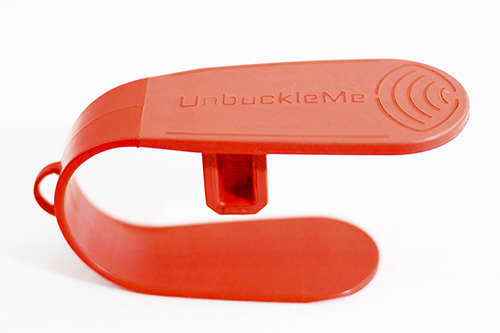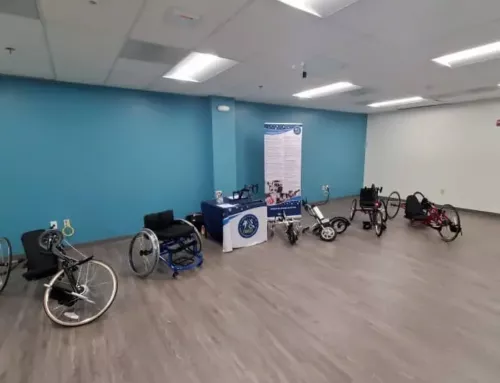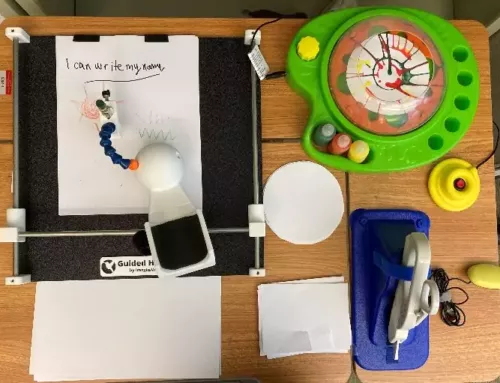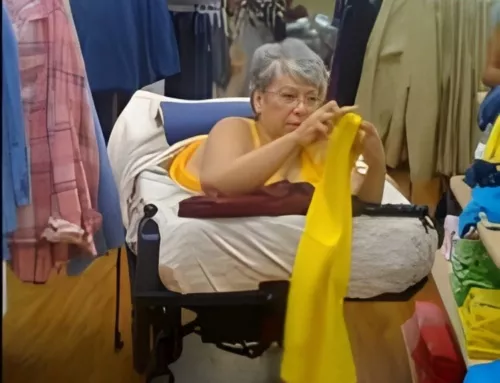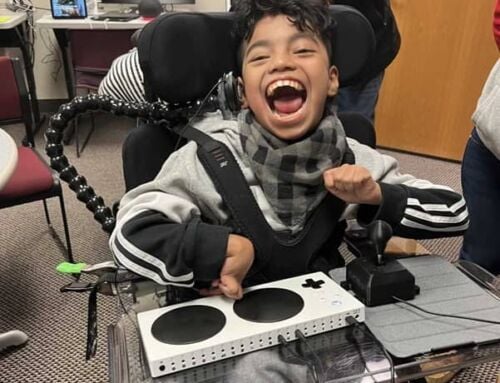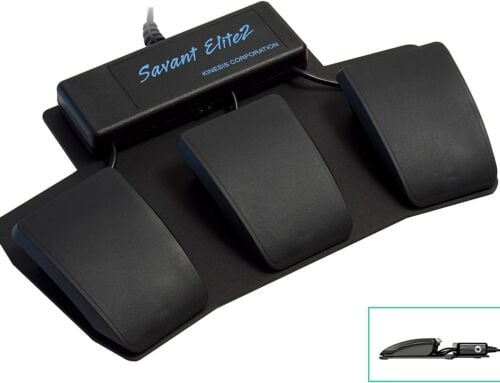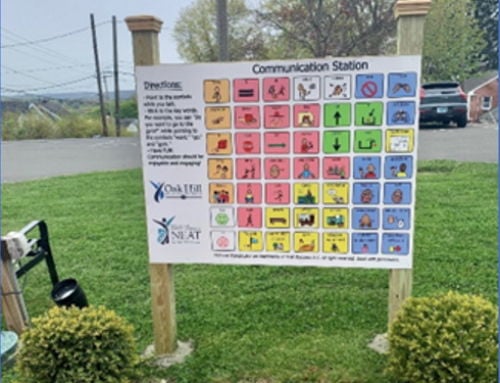AT for Baby Care Comes to Oklahoma
ABLE Tech’s ABC Program is providing adaptive baby equipment to parents with disabilities, free of charge, for as long as they need it.
Photo credit: Max Pixel
Every state and territory has an Assistive Technology (AT) Program where people with disabilities, caregivers, and service providers can borrow devices for trial, professional development, or to fill a short-term need. Now in Oklahoma, there’s a new kind of device loan program specifically geared to parents with disabilities: ABLE Tech’s ABC Program.
ABC stands for Adaptive Baby Care, a category of equipment for helping parents with physical limitations care for their babies and toddlers. ABLE Tech has created an inventory of commonly-needed equipment that’s either been adapted or specially designed for aiding with carrying, feeding, diapering, bathing, and other typical babycare tasks. Devices are available for as long as a borrower can use them and then cleaned and refurbished for the next family.
If you read our recent interview with Leah Smith, a mom with dwarfism raising two kids in California, you’ll have seen the ways she and her husband, Joe (who uses a wheelchair and also has dwarfism), have adapted baby care equipment. Many of the items in ABLE Tech’s ABC inventory are commercial versions of Leah and Joe’s ingenuity. Examples include an adapted diaper table, baby care rollators, and an adapted crib.
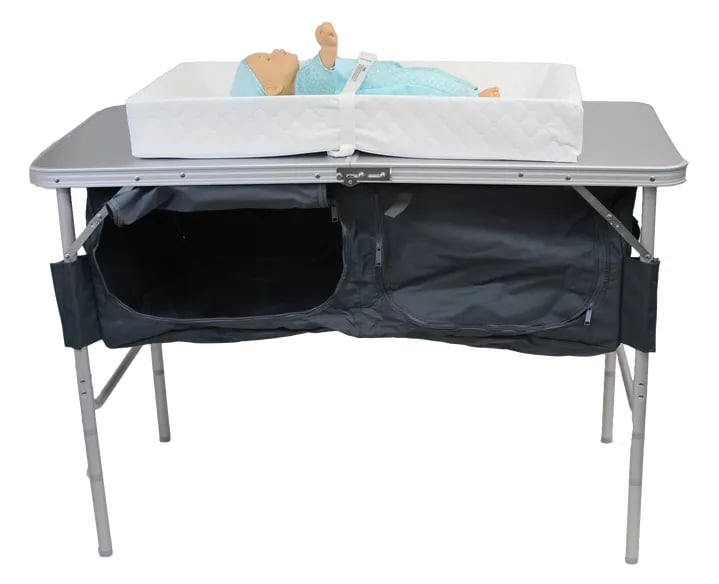
A changing station with adjustable-height legs.
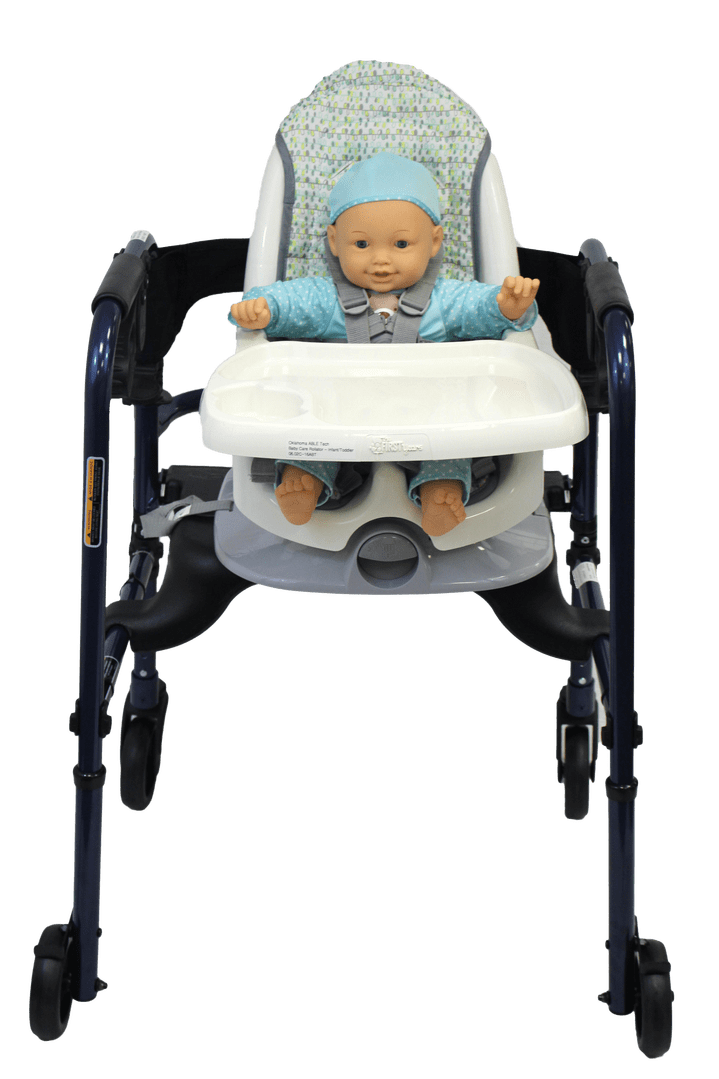
Baby care rollator for an infant or toddler.
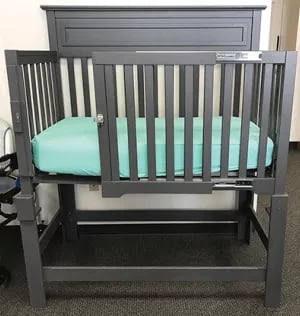
An adapted crib. ABLE Tech has four cribs in its ABC inventory
ABLE Tech created the ABC program in partnership with the Oklahoma Developmental Disabilities Council, the Christopher and Dana Reeve Foundation and Sooner SUCCESS, an agency that supports families with disabilities statewide in Oklahoma. Sooner SUCCESS approached ABLE Tech because of the gap in services for parents with disabilities and the needed knowledge about equipment that can make a difference for families and children, including with child welfare agencies. In Oklahoma and 34 more states, parents can lose custody of their children on the basis of disability alone (according to the National Council on Disability).
“I’m working with a mom right now who lost custody of her children and her parental rights two years ago and now she’s had another baby,” ABC Program Coordinator Dina Anderson tells AT3 Center. “The hospital is saying she can’t take care of this baby, but the DHS social worker is saying she thinks she can if she has the right supports.” Dina is working with the hospital and the DHS worker to get mom and baby home. “It’s situations like this that moved Sooner SUCCESS to approach ABLE Tech and say, Can you help?”
To create ABC, ABLE Tech pursued training on adaptive baby equipment from Through the Looking Glass, a national clearinghouse of information and technical assistance supporting parents with disabilities and children with disabilities. Through the Looking Glass provides direct services and also trains occupational therapists (OTs) on conducting assessments and matching equipment with families and environments. Some of the equipment in the ABC device inventory requires an OT referral. In situations where a family is not already connected with services, Dina, who is an OT, works with the parents and/or referring agency to connect them with the necessary resources.
The ABC program is just beginning to gain traction with providers. Referrals have come from NICUs at hospitals and while few to date, ABC has hit the ground running. Parents thus far have complex needs; sometimes both baby and parent have disabilities. Every case is different and requires a high level of individualized problem-solving. “There are so few resources for parents with disabilities,” Dina notes.
Even still, outreach is a challenge when the inventory serves parents of young children only; it’s a narrow window of time to hit. “But Sooner SUCCESS is doing a great job, word of mouth is kicking in, and we’re targeting nursing education programs and OT conferences,” she says. Meanwhile, ABLE Tech is refining their protocols. “We’ve learned we need a triage tool: a list of questions to determine what areas of baby care a person is struggling with.” Individually, socially and culturally, “Parenting with a disability is a new conversation.”
More resources:
Babycare Assistive Technology for Parents with Physical Disabilities from Through the Looking Glass
Babycare Assistive Technology from Through the Looking Glass
Michigan AT Program Webinar (archived): AT for Parenting with a Disability
The Disabled Parenting Project
Disabled Parents Toolkit from NCD (plain text version)
Mom Products When Ill or Disabled (Pinterest)
Monthly Blog Digest
Search the blog
State AT Program Blogs
California
Florida
Indiana
Kentucky
Louisiana
Maryland
Massachusetts
Michigan
Montana
North Carolina
North Dakota
Utah
State AT Program Blogs
The AT3 Center, the Association of AT Act Programs (ATAP), and the Administration on Community Living (ACL) make no endorsement, representation, or warranty expressed or implied for any product, device, or information set forth in this blog. The AT3 Center, ATAP, and ACL have not examined, reviewed, or tested any product or device hereto referred.


